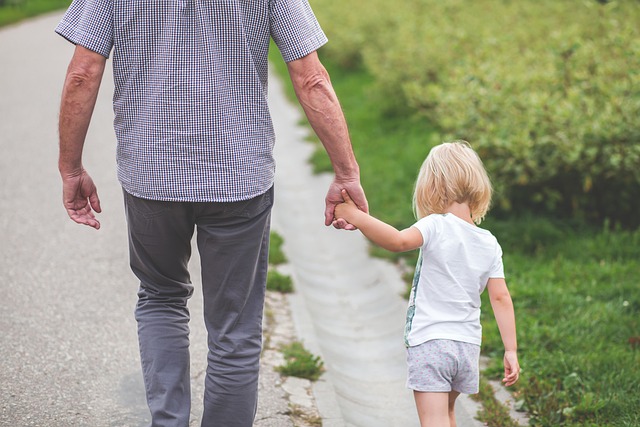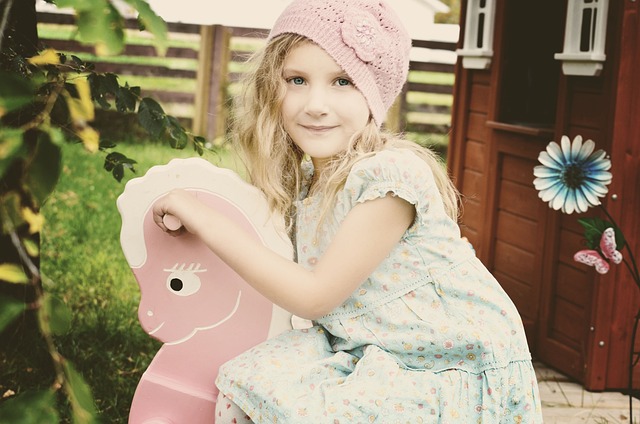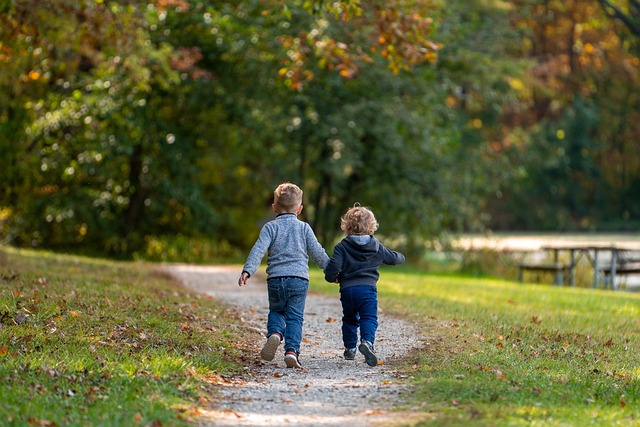Talking about politics with a child and getting him interested in it is a real challenge. The political debate present in the media is very abstract and distant from its concerns… and our discussions with adults are not always very positive. So should we give up? No way!
Opening the child up to others is already politics!
Talking politics to a child consists first of all explaining to him notions that are not immediately obvious. So let’s avoid total abstraction or idealism, and let’s stay concrete, by drawing from daily life, at home or with the family, where eminently political questions arise!
Where to start? For the vast majority of great thinkers or philosophers – starting with Jean-Jacques Rousseau – it is enough to get the child not to consider himself as the center of the world, to open him up to others, so that, from a natural way, he becomes a “complete” adult. In a way, interest in politics will come with age; you don’t have to skip the steps.
Yet this obvious and simple process doesn’t always seem to work perfectly. The proof: young people would not be very interested in elections, political parties, or the democratic game in general. This observation is only partly true. Indeed, on the other hand, the mobilization of young people for great causes, anti-racism or justice, the fight against homophobia or against violence at school and college, is intact – even increasing. . But this interest remains abstract and does not often lead to a “political awareness”.
Parents can help this “ natural process ” get (re)started, and get their children interested in political issues, in the best sense of the word.
A rule of the game is already a social contract
Politics begins with the need to live with others, to come to terms with their presence, to settle disputes, and to engage in common actions. All this, the child does it too, and at every moment. He articulates his relationships with others (children or adults) in play, at school, and in the family.
Thus, in the game, it is the children who institute, choose or accept the rules. The game is an introduction to politics. Accepting the rules of the game, not changing them along the way when the player’s situation becomes unfavorable, and knowing how to enforce them without verbal or physical violence, is indeed a way of learning to live together. A child who does not respect the rules of the game has “anti-political” behavior. This is an opportunity to explain it to him, to place him in a social vision rather than letting him lock himself in his will to be all-powerful.
Rousseau, in L’Émile, returns several times to these rules of life in society to which children, like adults, must comply. If the child tries to avoid it, Rousseau advises never to give in! The child must understand, and quickly, that he is not all-powerful. The game is a privileged moment for this: respecting the rules with your playmates is therefore essential.
Moreover, each citizen must, during his life, decide for or against; the choice is one of the foundations of democratic politics. The child, too, makes choices quite comparable to those of adults – in his own sphere, of course.
At school
The classroom or the playground are also high places of political life, on the scale of the child. That’s why it’s good to be interested in what your child tells you about his day at school – and it’s not just the grades! It is by discussing with him that you can introduce him, without his realizing it, to politics.
Class life, for example, often revolves around discipline, rules, and injustice perceived or suffered by the child. The child resents an unfair decision more than a fair and equitable decision. Bitterness often emerges, which can go as far as blocking the person judged to be responsible. This type of reaction is a good opportunity to approach the notion of injustice, which is a concrete initiation into the necessity of politics. Parents can listen, discuss and find solutions with the child to the problem he is asking himself and them. It is by seeking together a positive outcome that one best initiates one’s child to a political behavior that respects others and oneself.
Likewise, the history lesson is political – that’s all we even talk about! This is another way of learning what politics is. Lathan is a course in politics proper, but the election of class delegates, from college, is the first moment of the open political activity of young people recognized by the Institutions. And that’s important!
With family
In the family, the situation is different. The family is the place of maximum protection for the child.
However, there are some rules that fall within the political domain. Thus, the family is not isolated from the rest of the world. If the child is protected there, it cannot mean that the family will do everything for him, even when he is at fault. Parents must make him understand that as long as he respects the social rules accepted by all, the family will necessarily be at his side. But if he breaks the rules, his parents will give him a deserved punishment – even if family justice is often more lenient than that of society…
Manichean. It’s normal! More often than not, there is no place, among toddlers, except for the just and the unjust, the good and the bad. Listening to their opinion and talking about it them is a moment of political learning. It is little by little while growing up, that the child will be able to acquire more subtle notions, through discussions with his parents, his classmates, or other adults.
Politics with children, after all, is very simple!
When our children grow up, we are going to deepen and develop, with them, the reflection they lead from the earliest childhood on the laws, in the most concrete way possible, by giving themselves the rules of their own games. collectives.
We will thus make (very good) politics as a family! A simple and understandable policy that, casually, touches on the essentials and opens the way to all options, from unconditional obedience to rebellion against injustice! Once again: real politics.



Leave a Reply
You must be logged in to post a comment.